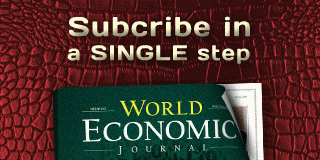“I Have No Idea What People are Saying When They Call Themselves Patriots”
The article is published in: July - August 2012
Roman Avdeev, the CEO of the “Rossium” company group and the primary beneficiary of the Moscow Credit Bank, believes that inner harmony and self-realization are the most important things in life. The father of 23 children, a philosopher, and a vegetarian, Avdeev discussed his commute to work and material “gluttony” with WEJ reports Julia Petrova and Anastasia Yakovleva.
Anastasia Yakovleva (A.Y.): Moscow Credit Bank’s assets have multiplied in value by almost 7 times since you took over its leadership, a truly impressive feat!
This was the result of our entire team’s efforts – it is not just my achievement. My main assets go to bed every night. But building a team and developing a team mentality are both very important in our industry, because the banking business is all about taking risks. People need to know how to support one another in difficult situations. The last five years have been quite difficult for the Russian banking sector, but these difficulties have given us many opportunities for growth. I think bankers make the best decisions in the worst of times – while our main competitors were addressing the risk issues in their loan portfolios, we cultivated and formed a high-end customer base. We have a development strategy, which we do not increase when the market is good or decrease in times of economic turmoil. In my opinion, all banking business should be carried out conservatively.

Julia Petrova (J.P.).: What does that mean for you – do you try to avoid taking any risks in business? And isn’t everything in the banking sector risky?
We take any potential risk and manage it. We do not go anywhere near the “boundaries” when it comes to risky transactions, and as a bank, we are not too greedy. That way, we develop very marginally, but we choose less risky products and have more freedom with our clients, who occasionally help us actively advance. It is important for a bank to be dynamic as well. Many think of a bank the same way they think of a dentist’s office – it is a necessity, but no one really wants to go. Therefore, banks need to incorporate more drive, youth, and energy into their services.
A.Y.: What about natural risks in life?
I try to derive pleasure in life – I do not participate in extreme sports, although I enjoy living actively. Taking pleasure in your life is a very important thing. And I receive pleasure primarily through my own self-realization. And my main realization is my family.
J.P.: What simple things bring you pleasure?
Simple things in life bring you pleasure. When a person starts crowding his brain with difficult things, it cannot give him or her pleasure. You need to learn how to notice the tiniest details, and you have to have a sense of humor in life, even when you are dealing with serious subjects.
J.P.: Are these the morals you teach your children? Which work rules do you bring home with you? Do your family members have separate roles?
I try to bring home more of a “partner” role. I am the one responsible for disciplining and punishing the children. When I lecture them or correct their behavior, I tell them, “You have to do it this way – not because I’m right , but because I’m older and I am responsible for you. When you grow up, your actions will be on your own conscience.” And if the kids demand something, my wife and I, although we may not agree with them, try to cooperate and come to some sort of compromise.
A.Y.: You discuss a problem with your children and come to a consensus?
Yes. We’ve been holding a weekly family council to talk about the good and bad things that happened over the course of that week. When children listen to themselves, it creates a more understanding environment for them. I try to play the role of senior partner. It is important to give children not an unlimited amount of time, but just as much as they need, when they need it.
J.P.: Do your children attend a regular school?
Yes, they go to a regular school in Odintsovo. But during the summer, my older children go to school in England. They tell me that it is a lot more interesting to study there than it is in Russia. They study and read, of course, but in English classes, a teacher asks a question and follows it with a discussion and a lively conversation.
J.P.: Are they growing up to be cosmopolitans, or are you trying to instill some patriotism in them?
We often exploit this phrase, but I personally have no idea what people mean when they call themselves “patriots”. We should be proud of the things that we as the new generation have accomplished, rather than just celebrating for being Russian. We had no choice in our own nationality, and celebrating our victory in World War II makes no sense, because the war was won by our fathers and grandfathers – you and I had absolutely nothing to do with it. A person should not be proud of anything except for what he or she has accomplished.

A.Y.: Would you want your children to stay in Russia when they grow up?
The most important thing for children to understand is the distinction between what is good and what is bad. It does not matter whether they share my views or not – I care more about letting them make independent choices. I would want them to stay here and remain Russian citizens. But I respect their individual choices, and if they decide to leave, I would support them 100%.
J.P.: With 23 children, you must have an incredibly large and loud family, not to mention fun! Do you travel all together?
We have a tradition where we go skilling all together in the mountains. We also often go to our country house in Lipetsk
J.P.: How much land do you own?
I started buying up agricultural land in the mid-2000s, and I now own about 100 thousand hectares of farmland in the Lipetsk, Tambov, and Voronezh regions. We cultivate sugar beets, barley, wheat, sunflowers, and buckwheat. Some of the land is also used to grow bulls.
A.Y.: So you have a more positive outlook on the development of domestic agriculture?
Russian agriculture has enormous potential, but we lack the government measures to provide for the population and control inflation. Right now, we are moving towards new market mechanisms, which places more demand on the people engaged in agriculture while making the whole process more efficient. It all boils down to logistics and staff rotation, but the actual potential of the project is crazy!
J.P.: Why did you decide to become a vegetarian?
Several events influenced my decision to become a vegetarian. One day, a couple of colleagues and I went hunting, where we killed, roasted, and ate him. It struck me as a particularly wild act, especially because I never kill anything for fu. I even try to not squash mosquitoes. Then, on a separate day, I was walking around Berlin with a friend when I came across several green peace protestors eating chicken protestors. And then, at long last, I went to a simple prayer service and listened to the monk, who said that people need to lead pure and simple lives. Those words really sank into my soul.
J.P.: When we looked on your website, it said that you often think about death. Can you tell us why that is?
I made it a personal rule to think abou t death every day, it makes me more optimistic. You start looking at the important things in life differently after doing so. I do not do a lot of meaningless things as a result, and I try to take advantage of every moment. I think people need to take life easier and really enjoy it.
A.Y.: Do you think you have “internal freedom”?
Yes. More importantly, a person can easily distinguish the things he does and does not need after finding this internal freedom. In our consumer society, there is often a moral and materialistic gluttony and people cannot possibly “digest” everything that they buy.

J.P.: Do you have a required minimum for being happy?
If you mean the standard “building a house and raising a son”, then I would say that happiness has nothing to do with that. People need to find harmony within themselves.
A.Y: Do you consider yourself happy?
Overall, yes, but I also do not like many things about myself. Living the way I would like to – that is happiness and “internal freedom”, more in a moral sense rather than a physical one. In that situation, each individual person becomes the Creator (with a capital C) of his or her own life. Only the simple things in life can bring you pleasure.
There are no comments yet. Why don’t you leave your own comment?
It is not possible to make a comment anonymously. Please . It is very simple. |















